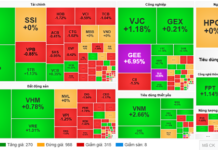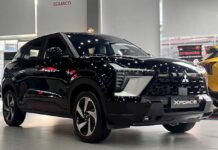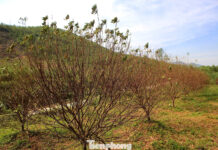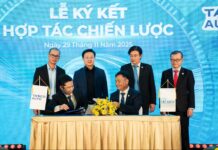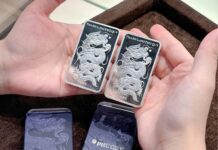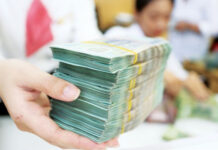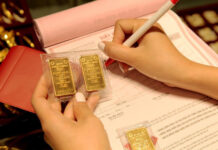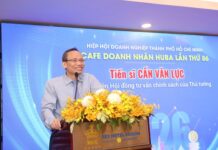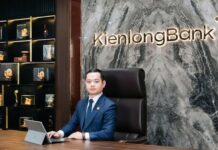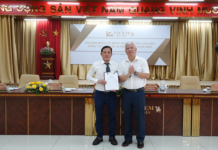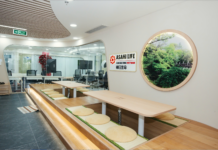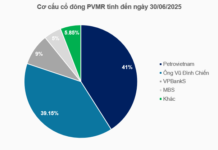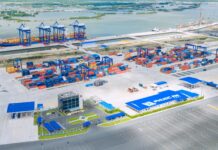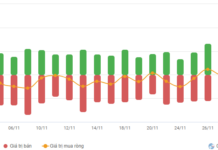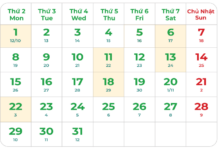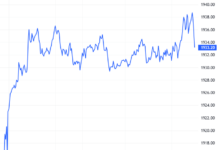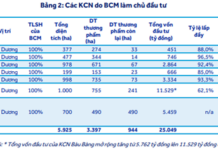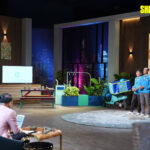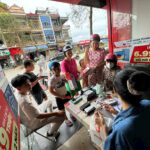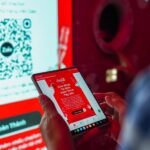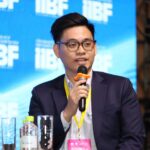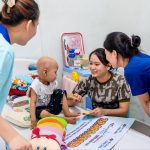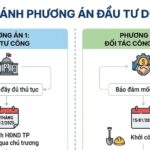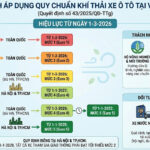From Bamboo Bottles to the Fight Against Plastic Waste
The story of Frantz Pedersen and his journey to Vietnam began in 2015 with a clear mission: to source bamboo for producing water bottles. At the time, he had a startup in Denmark called “Not Just a Bottle,” reflecting his ambition to create environmentally friendly bottles with a minimal ecological footprint.
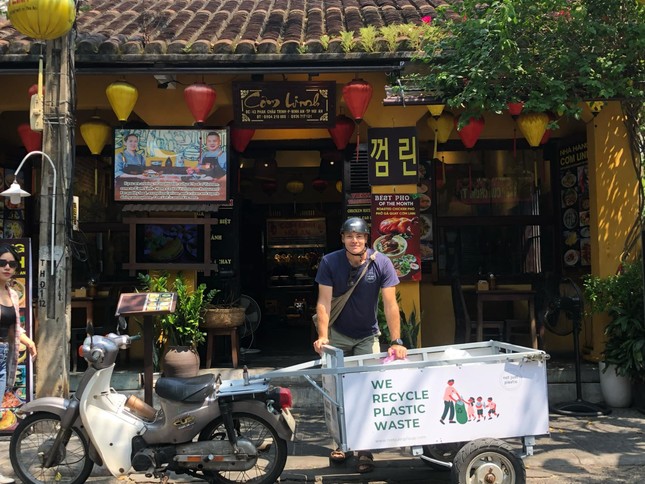
The familiar sight of Frantz in Hoi An.
Little did he know that this trip would forge a deep connection with Vietnam. Frantz decided to establish his company in the heart of the bamboo source region. After two and a half years of research and experimentation, “Not Just Bamboo” was born in 2018. In addition to their certified safe bamboo water bottles, the company also produces bamboo toothbrushes. But Frantz and his team didn’t stop there; they began experimenting with used coffee grounds, paper waste, and other discarded materials. “We’re researching how to combine these waste streams with bamboo waste to produce cups,” he shared.
Three years later, Frantz unveiled a “completely natural” cup made from used coffee grounds, bamboo waste, paper waste, and a biodegradable binding agent. This innovative product was registered and sold in Europe from early 2022.
In March 2022, Frantz chose Hoi An as his base. A pivotal moment that steered him towards recycling came when someone asked if he had any experience with plastic. Frantz replied, “I don’t know much, but I can give it a try.” And thus began the journey of his current company, “Not Just Plastic,” specializing in collecting plastic waste from food and beverage establishments, schools, and hotels, and transforming them into recycled products.
Frantz explained, “Plastic is categorized into seven types, and we mainly focus on four. Some plastics have high value, like PET (transparent, lightweight, durable, and chemically resistant, commonly used for water bottles, carbonated drink bottles, food containers, and food wrapping) and HDPE (highly durable, rigid, heat and chemical resistant, waterproof, often used for milk cartons, shampoo bottles, cooking oil bottles, food bags, and water pipes). On the other hand, some plastics have low value, such as plastic bags, zip locks, membrane straps, or nylon cords around paper boxes. Single-use drinking straws, cups, and food containers are among the challenging plastics to recycle.”
One of the challenges Frantz faced in waste collection was the relatively low awareness of proper waste segregation among the Vietnamese. Plastic waste often ends up mixed with organic and household waste, eventually being buried or burned. The subsequent collection process is arduous and requires extensive cleaning.
“So, we strive to raise awareness among restaurants, schools, and the community about reducing plastic waste. It took me about a year and a half to convince shop owners to agree to help sort and clean plastic waste before disposing of it. They can bring it to our facility, or we can collect it from them to ensure that this waste is recycled,” Frantz said.
This initiative led to the now-familiar image of “the foreigner driving around Hoi An collecting trash.” Due to the company’s limited manpower, director Frantz himself often takes the wheel to collect waste. His old Cup car, towing a white trash bin emblazoned with the words “We Recycle Plastic Waste,” has become a common sight in the narrow alleys of Hoi An, with many locals commenting that his driving skills seem like those of a native.
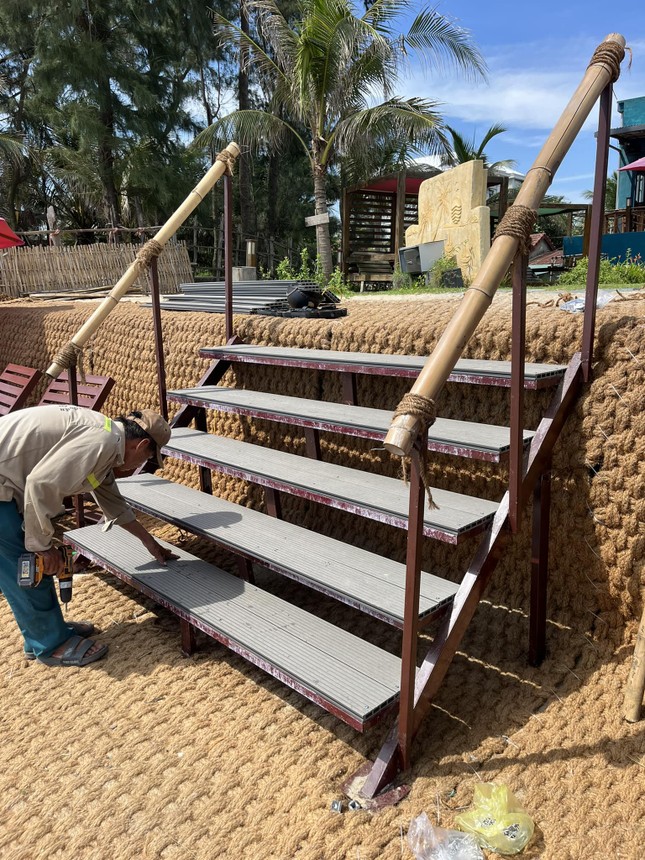
Frantz’s recycled plastic sheets are becoming a popular building material in Hoi An.
Gaining Community Support…
Frantz acknowledged that collecting plastic is not the challenging part; the real difficulty lies in making the business model sustainable.
To date, Frantz’s “Not Just Plastic” has collected over ten tons of plastic waste. After collection, the plastic is taken to their workshop, where it is sorted, cleaned, crushed, and packaged into separate bags. These bags are then sent to a recycled plastic manufacturing plant.
One of the critical factors contributing to Frantz’s success is his emphasis on community spirit. He consistently highlights the importance of collaboration and mutual support. Thanks to his strong connections with the local community, he has received enthusiastic support from the people of Hoi An.
“Initially, convincing people to sort and clean their waste wasn’t easy. When I proposed this to some restaurant owners, they replied that they didn’t have the time and were too busy. But when I told them, ‘You may use a plastic cup or straw and discard it immediately, but some of your customers, especially those from Europe or other countries and territories, may wonder why your establishment uses single-use plastic. If you collaborate with us, you can assure your customers that all the plastic products in your cafe, restaurant, or hotel will be recycled. This is quite important to environmentally conscious customers and can influence their choice to patronize your business.’ Gradually, people became more receptive, and the number of partners willing to work with us increased. That’s a good sign,” Frantz proudly shared.
“Vietnam is a densely populated country with around 100 million people. Yet, just a few steps outside your home, you’re likely to run into someone you know. This is one of the things I love about Vietnam. People always help each other, especially in Hoi An. Hoi An is a small community, but even in Da Nang, it’s the same. People are very open and always willing to lend a helping hand to ensure mutual success.”
Frantz Pedersen
According to statistics, “Not Just Plastic” has partnered with over 100 “plastic partners,” including restaurants, hotels, resorts, cafes, eateries, schools, and households in both Da Nang and Hoi An. These partners commit to providing cleaned plastic waste to Frantz’s facility at specified times.
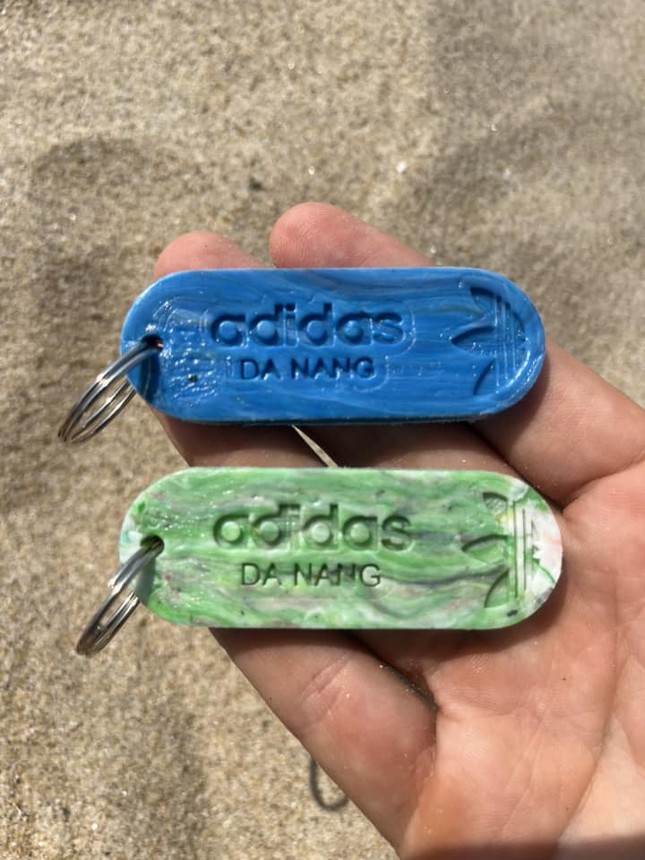
Adidas gifts made from recycled plastic.
“Seeing the smiles of those who give us their waste and the small changes in the younger generation as they witness our actions, I’m grateful to be in Vietnam and work here. I’m thankful to be doing something that makes a difference and inspires others,” Frantz expressed.
Additionally, during his journey, Frantz initiated a project called “Give Back to Vietnam.” For every recycled product sold, he donates a portion to schools in mountainous regions and non-governmental organizations in Vietnam.
Over the years, “Give Back to Vietnam” has contributed to building 12 water filtration systems and a solar energy project in Lao Cai. Approximately 3,000 mountain students now have access to safe drinking water due to this initiative.
“We’re not just selling a product; we want to tell the story behind each product. We’re also exploring ways to combine plastic with other materials to enhance durability. For example, for our floor tiles, we use 35% plastic waste, including HDPE and a small amount of PP plastic (collected from straws, bottles, and bottle caps), mixed with 50% wood waste. We produce floor tiles with 85% recycled content. We then add UV protection and anti-slip treatment. These tiles are ideal for hotels as they are durable, require no polishing like wooden floors, and are resistant to termites. Moreover, at the end of their lifespan, these tiles can be recycled again,” he added.
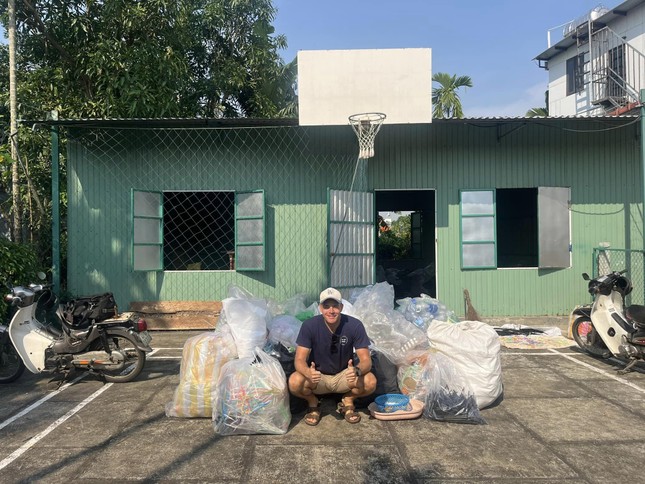
As the startup has a small team, director Frantz often drives around to collect waste himself.
It is worth noting that these recycled plastic tiles from Frantz’s company have already been adopted by several resorts in Hoi An and Da Nang, showcasing their superiority over wooden alternatives in terms of durability, anti-slip and anti-termite properties, cost-effectiveness, and, most importantly, reduced environmental impact.
“Material Success is Not Enough for a Man’s Spirit”: Confessions of a Startup That Pitches for a Whopping $43 Million on Shark Tank
“It wasn’t revenue and profits that drove us to enter the recycling industry. We had already found material success in our previous venture in road construction, but it wasn’t fulfilling on a spiritual level, neither as men nor as fathers. I have three sons, and I want them to have grand aspirations and ideals.” – Lê Trung Thông, CEO of Lagom Vietnam.
The Magic of Coca-Cola: Celebrating 30 Years of Commitment to Sustainable Development in Vietnam
Coca-Cola recently celebrated a significant milestone in Vietnam – 30 vibrant and successful years in the market. As part of this celebration, Coca-Cola is proud to continue the second year of its ‘Reborn Plastic Bottle, A Continuing Journey’ program.
“Unilever Vietnam Takes the Lead in Driving Plastic Circularity in its Value Chain.”
Over the years, Unilever Vietnam has steadfastly implemented a strategy to promote plastic circularity within its value chain. Representatives from Unilever Vietnam and DUYTAN Plastic Recycling Joint Stock Company shared insights into the solutions they have employed and continue to employ to achieve this.

